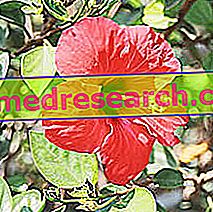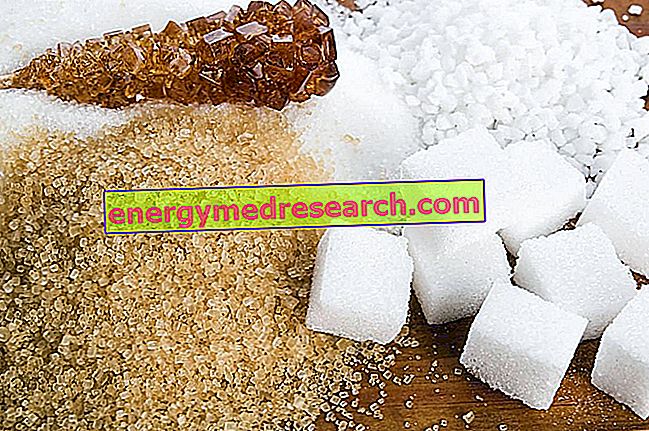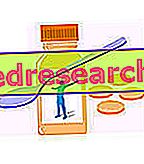
Scientific name
Hibiscus sabdariffa
Family
Malvaceae
Origin
Western India, Asia
Synonyms
Carcade
Used Parts
Drug consisting of flowers (chalice after fertilization)
Chemical constituents
- Tannins;
- Flavonoids;
- Anthocyanins;
- C vitamin;
- mucilage;
- Organic acids (ibischico, malico, tartaric).
Hibiscus in Herbalist: Properties of the Hibiscus
The carcadé infusion is used as a thirst-quenching drink and as a source of vitamin C and polyphenols with antioxidant activity.
Biological activity
The labyrinth is attributed laxative properties, due to its high content of poorly absorbable organic acids.
Furthermore, the hibiscus extract has been shown to exert a relaxing effect on the uterine smooth muscle and to possess also an antihypertensive type activity. In this regard, an interesting study was conducted to verify the effectiveness of this plant in reducing hypertension compared to lisinopril (an ACE inhibitor commonly used in the treatment of hypertension). From this study it was found that the effectiveness of the hibiscus in lowering excessively high blood pressure levels is comparable to that of lisinopril. This activity appears to be attributable to the anthocyanins contained in the plant.
A similar study was carried out to compare the effectiveness of hibiscus to that of hydrochlorothiazide (a diuretic) in counteracting mild to moderate hypertension. The results of this study were decidedly encouraging. In fact, the hibiscus not only proved to be more effective than hydrochlorothiazide but - compared to the latter - it did not cause electrolyte imbalances and has been shown to have a longer duration of action.
However, despite the results obtained so far, more in-depth clinical studies are certainly necessary before approving similar therapeutic applications of the hibiscus.
Hibiscus in folk medicine and homeopathy
Hibiscus is used for the production of refreshing, thirst-quenching and diuretic drinks, but is also used in folk medicine as a remedy to counteract the loss of appetite and colds.
In Chinese medicine, on the other hand, the hibiscus is used in various preparations for the treatment of skin inflammations and swellings, burns, conjunctivitis and is even used as a remedy for carbuncle (anthrax) and shingles .
As far as homeopathic medicine is concerned, however, at the moment the hibiscus has no use in this area.
Contraindications
Avoid use in case of hypersensitivity to one or more components
Pharmacological Interactions
- not known



